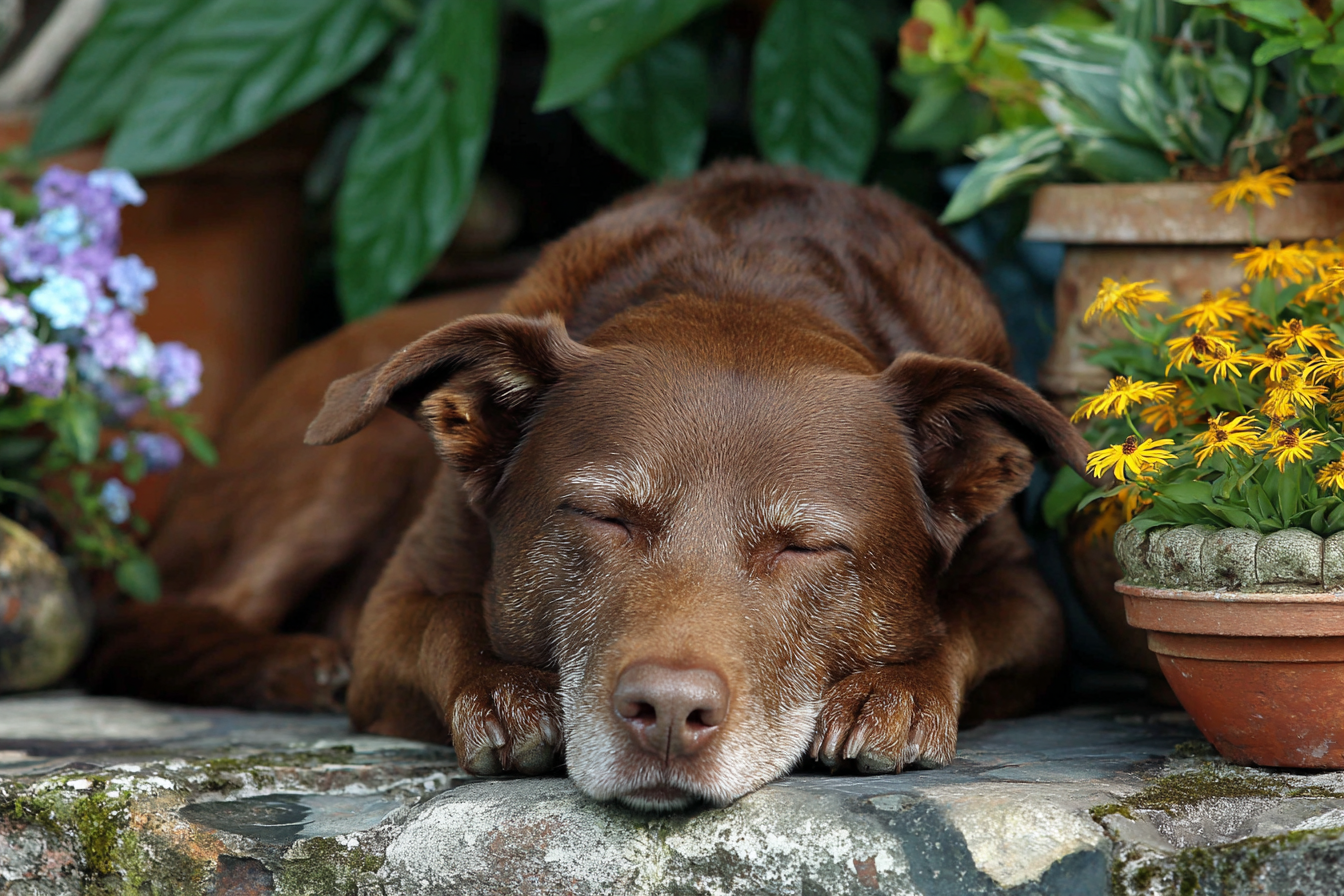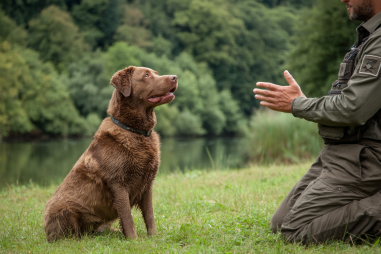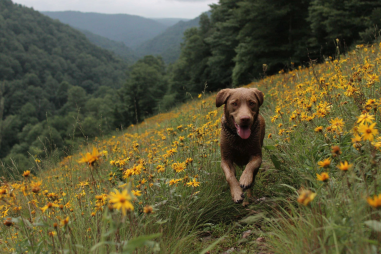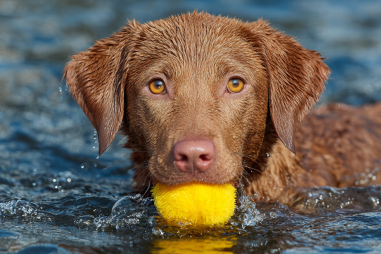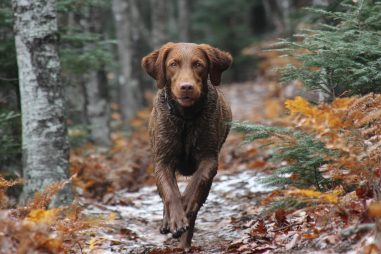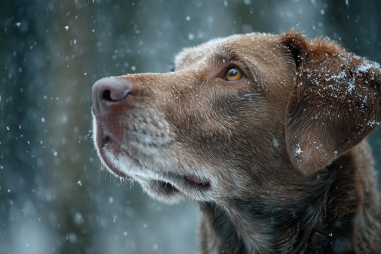Chesapeake Bay Retrievers are beloved for their intelligence, loyalty, and rugged working ability. Like all breeds, they experience changes as they age, and understanding those changes can help you provide the best care throughout their lives. From the typical lifespan to recognizing the subtle signs of aging, and from nutrition to emotional support, this guide offers insights into how to help your Chesapeake Bay Retriever age gracefully and happily.
Average Lifespan Expectations
On average, Chesapeake Bay Retrievers live between 10 to 13 years. This range can vary depending on genetics, lifestyle, and healthcare. Some individuals may surpass this span, enjoying quality years well into their teens, while others may face earlier health challenges. By being aware of this timeframe, dog owners can prepare for the different stages of their Chesapeake Bay Retriever’s life, adjusting care and expectations accordingly.
Signs of Aging in the Breed
Recognizing when your Chesapeake Bay Retriever is entering their senior years is essential for adapting their care routines. Signs of aging generally become noticeable around 7 to 8 years old, though this can vary.
Typical indicators include:
- Slower Movements: Your dog may become less enthusiastic about vigorous play or long walks.
- Changes in Coat and Skin: Graying around the muzzle, thinning fur, or changes in skin texture might appear.
- Reduced Hearing or Vision: Your dog might startle more easily or be less responsive to commands.
- Stiffness or Joint Issues: Difficulty rising, limping, or reluctance to climb stairs can be signs of arthritis or other joint concerns.
- Altered Sleep Patterns: Increased napping or restlessness at night can also occur.
Paying close attention to these changes can ensure timely adjustments to care and early interventions to keep your senior dog comfortable.
Senior Dog Nutrition and Exercise
Proper nutrition and exercise are cornerstones of healthy aging for Chesapeake Bay Retrievers. As your dog transitions into their senior years, their metabolism tends to slow down, which means their energy requirements may decrease.
- Nutrition: Senior dogs benefit from diets formulated with balanced protein levels to maintain muscle mass, increased fiber for digestive health, and controlled fat to prevent weight gain. Nutrients like omega-3 fatty acids can support joint and cognitive health. Always consider consulting your veterinarian to tailor a diet plan that meets your dog’s specific needs.
- Exercise: While energy levels might taper, maintaining regular physical activity is crucial. Low-impact exercises such as gentle walks, swimming, or controlled play help keep joints flexible, muscles strong, and maintain a healthy weight. Avoid overexertion, especially in cold or hot weather, and adjust activities based on your dog’s comfort and mobility.
Health Screenings for Older Dogs
Routine veterinary visits become increasingly important as your Chesapeake Bay Retriever ages. Regular health screenings can detect emerging issues early, improving long-term quality of life. Some recommended screenings and checks include:
- Blood Tests: To monitor organ function, including kidney and liver health.
- Dental Checks: Dental disease is common and can affect overall health.
- Weight and Body Condition Assessments: To prevent obesity or identify muscle loss.
- Joint and Mobility Evaluations: To diagnose arthritis or hip dysplasia.
- Eye and Ear Examinations: To catch cataracts, glaucoma, or hearing loss.
- Heart and Lung Monitoring: As cardiovascular fitness can decline with age.
Staying on top of these health checks allows for timely treatments and adjustments to your dog’s care plan.
Comfort and Mobility Support
Supporting your Chesapeake Bay Retriever’s comfort and mobility is key during their senior years. Many aging dogs develop stiffness and joint pain, but there are various ways to ease these challenges.
- Orthopedic Bedding: Providing a supportive dog bed with memory foam can reduce pressure on aching joints.
- Ramps and Steps: Using ramps or pet stairs for easier access to furniture or vehicles helps avoid strain and injury.
- Joint Supplements: Supplements like glucosamine, chondroitin, and omega-3 fatty acids may promote joint health, but always discuss with your veterinarian before adding these.
- Physical Therapy: Gentle massage, hydrotherapy, or guided exercises from a veterinary physical therapist can improve range of motion and muscle tone.
Providing these supports not only helps physical wellbeing but also encourages your dog to stay active and engaged.
Emotional Care for Aging Pets
Aging impacts more than just the physical body; emotional and mental health require compassionate attention as well. Senior Chesapeake Bay Retrievers might experience confusion, anxiety, or changes in social behavior due to cognitive decline or sensory loss. To nurture their emotional well-being, consider the following:
- Consistent Routine: Keeping feeding, walking, and bedtime schedules steady helps reduce anxiety.
- Extra Attention and Affection: Spend quality time with your dog, offering gentle petting, talking, and companionship.
- Safe and Quiet Spaces: Provide a calm environment free from loud noises or disruptions.
- Interactive Toys: Engage mental stimulation with puzzle toys or gentle games suited to their abilities.
- Monitor Behavioral Changes: Signs of confusion, disorientation, or depression should be discussed with your vet as there may be treatments or management options.
By addressing your dog’s emotional needs, you help preserve their happiness and strengthen your bond well into their senior years.
Helping Your Chesapeake Bay Retriever Age Gracefully
Watching your Chesapeake Bay Retriever grow from a lively pup to a dignified senior is a journey filled with love and adjustments. By understanding their typical lifespan and the aging process, you can anticipate their needs and provide attentive, compassionate care. Remember to offer balanced nutrition, appropriate exercise, routine veterinary check-ups, and emotional support tailored to this phase of life. With these measures, you are not only enhancing their comfort but also honoring the loyal companion who has shared life’s adventures with you.

